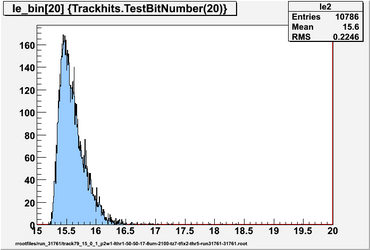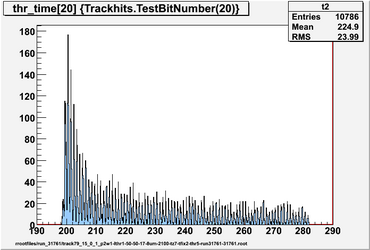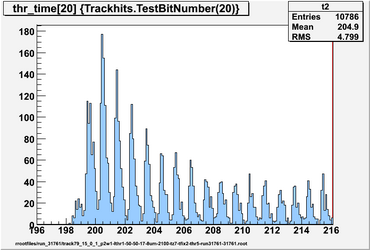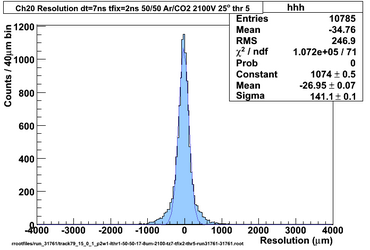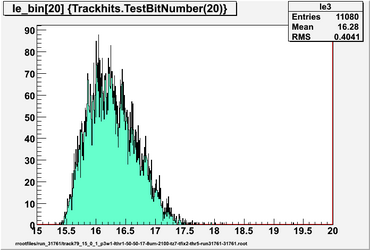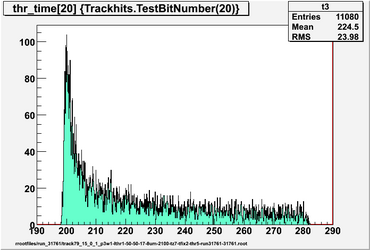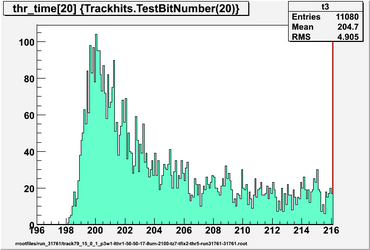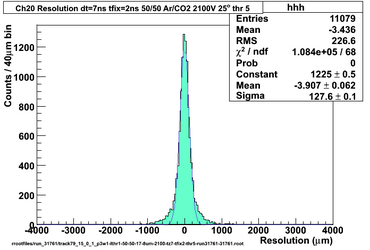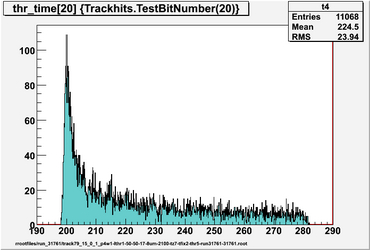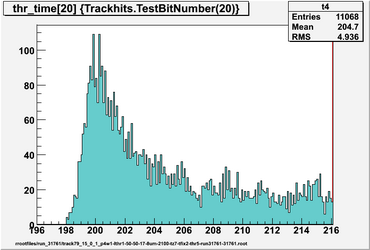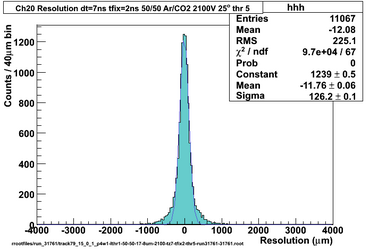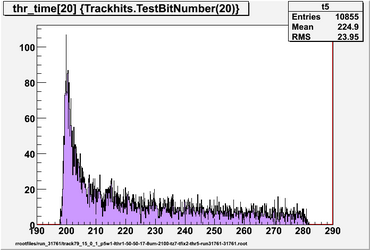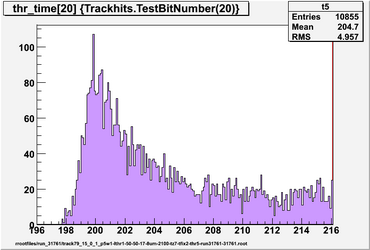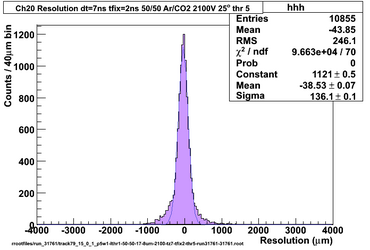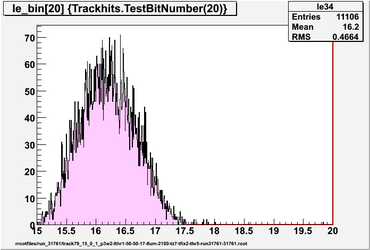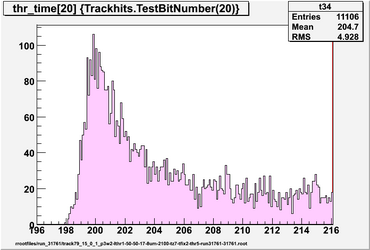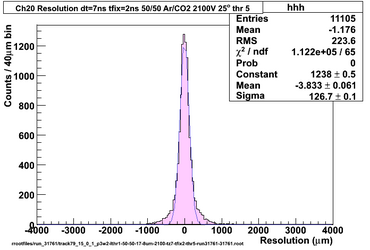Difference between revisions of "CDC prototype more drift times"
| Line 1: | Line 1: | ||
Drift time histograms for various local pedestal points | Drift time histograms for various local pedestal points | ||
<br> | <br> | ||
| − | The pedestal lead time is the # samples before the hit threshold crossing where the pedestal window ends. Usually I used 3 samples with a pedestal window 1 sample (ie the pedestal value is equal to the fADC value 3 samples before the hit threshold is exceeded). | + | The pedestal lead time is the # samples before the hit threshold crossing where the pedestal window ends. Usually I used 3 samples with a pedestal window 1 sample (ie the pedestal value is equal to the fADC value 3 samples before the hit threshold is exceeded). Previous experimenting showed that the best points to use for a 5-sigma hit threshold are a window of 1 or 2 samples, ending 3 bins before the hit threshold crossing. |
Also see [[CDC_prototype_more_on_timing]] | Also see [[CDC_prototype_more_on_timing]] | ||
<br> | <br> | ||
| Line 42: | Line 42: | ||
|[[Image:run_31761_p5w1_res20.png|thumb|x250px|Ch20 resolution]] | |[[Image:run_31761_p5w1_res20.png|thumb|x250px|Ch20 resolution]] | ||
|} | |} | ||
| − | <span style="color:#fff">851,836,426,871</span> | + | <br> |
| + | {| border="0" cellpadding="2" | ||
| + | |+Threshold time (8ns samples) and leading edge time at 1-sigma with pedestal mean of 3 and 4 bins before 5-sigma peak threshold | ||
| + | |[[Image:run_31761_p3w2_lebin20.png|thumb|x250px|leading edge time ]] | ||
| + | |[[Image:run_31761_p3w2_thrtime20.png|thumb|x250px|1-sigma threshold time]] | ||
| + | |[[Image:run_31761_p3w2_thrtime20z.png|thumb|x250px|1-sigma threshold time]] | ||
| + | |[[Image:run_31761_p3w2_res20.png|thumb|x250px|Ch20 resolution]] | ||
| + | |} | ||
| + | <span style="color:#fff">colors:851,836,426,871,606</span> | ||
<br> | <br> | ||
Revision as of 10:06, 8 March 2012
Drift time histograms for various local pedestal points
The pedestal lead time is the # samples before the hit threshold crossing where the pedestal window ends. Usually I used 3 samples with a pedestal window 1 sample (ie the pedestal value is equal to the fADC value 3 samples before the hit threshold is exceeded). Previous experimenting showed that the best points to use for a 5-sigma hit threshold are a window of 1 or 2 samples, ending 3 bins before the hit threshold crossing.
Also see CDC_prototype_more_on_timing
Le_bin is the timing threshold crossing in fADC samples (8ns each) and it is relative to the hit threshold crossing time. Le_bin=0 corresponds to (15 + pedestal lead) samples before the hit threshold crossing bin. ie the drift time in bins is hit threshold crossing bin - 15 - pedestal_lead_time + le_bin. The sample values sent to the upsampling algorithm start at le_bin=0. 20 + pedestal_lead_time values are used so the upsampling data end 5 samples after the hit threshold crossing bin.
colors:851,836,426,871,606
